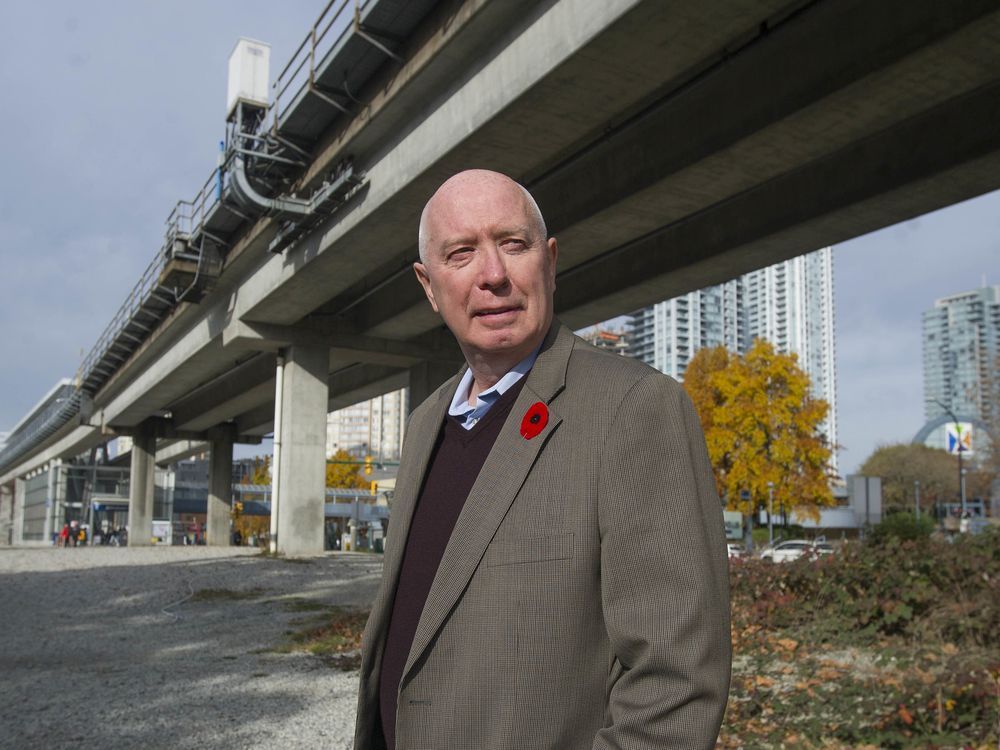New mayor's first year takes Burnaby in a new direction

Credit to Author: Jennifer Saltman| Date: Sat, 09 Nov 2019 01:37:41 +0000
Mike Hurley was apologetic.
He was running late because his meeting with B.C.’s housing minister had gone long, and the Burnaby mayor wanted to take advantage of every minute of face time he could get with Selina Robinson to talk about housing in his city.
Hurley had just marked his first year at the helm of the province’s third-most-populous city, and protecting rental stock, providing more affordable housing options for Burnaby residents and slowing the demolition of low-rise apartment buildings and the eviction of their residents in the Metrotown area were some of the reasons he had run for the position in the first place.
Hurley had dealt with local politicians for years as a firefighter, but had no political aspirations of his own until he saw what he described as a “downturn” in Burnaby.
“We weren’t willing to step up to the plate and help the most vulnerable in our society,” said Hurley. “I believe that when we have an opportunity to get a leg up or a hand up, we should take that opportunity, and I didn’t believe that was happening.”
During the 2018 municipal election campaign, he was a harsh critic of the policies of five-term mayor Derek Corrigan and his Burnaby Citizens Association council. During Corrigan’s tenure, the city experienced a loss of seven-per-cent of its purpose-built rental units, according to Canada Mortgage and Housing Corporation data.
The changes the previous council made near the end of its term — fast-tracking project approvals, reducing development costs for affordable projects and introducing rental zoning — weren’t working, Hurley said.
Burnaby Mayor Mike Hurley at Metrotown on Friday, Nov. 8, 2019.
During his first year, Hurley has made headway on his three-point plan to address affordability, including setting up a task force that came back with 18 recommendations, which were then included in a new housing strategy. While the task force did its work and the strategy was developed, there was a pause on development and, by extension, demovictions.
Hurley said the process involved meeting as many people as possible, listening to their stories and soliciting their ideas.
Policies include a requirement that new buildings contain at least 20 per cent affordable units, and strong renter protections. Burnaby is also working with the province to fund 1,300 new units that are affordable to rent or buy on seven city-owned sites, and Hurley hopes to get that number up to 2,000 units.
“I think we have a really good framework to move forward with,” Hurley said.
The mayor isn’t changing plans to develop and densify the city’s four town centres — Metrotown, which will eventually be the city’s downtown, Edmonds, Lougheed and Brentwood — but the hope is that those who use transit will be able to afford to live near the SkyTrain line and transit hubs.
Hurley said he has been able to accomplish as much as he has because of his leadership style.
Derek Corrigan,
“I think I’m a collaborator and someone who tries to work with people rather than, you know, taking a different approach of beating people up.”
Hurley has tried to apply that leadership style to both the public and council, where seven of Corrigan’s party members are still councillors.
Joe Keithley, a first-term Green councillor, described the previous mayor and council as “autocratic” and appreciates that Hurley is “a listener.” He said that while there are disagreements on council, there are also unanimous votes on important topics.
“Because there’s been a change in the leadership at the top, it’s allowed a lot of people along the way — councillors — to speak out and get their opinion out and not have their opinion squished,” Keithley said. “It’s been going really well.”
Six-term councillor Pietro Calendino agreed that there has been some friction between council members at times, but overall things are working as they should. He said Hurley listens and tries to work with all of council.
Calendino said he’s very pleased with the way the city is headed.
“I think it’s been different from the past. We’ve been able to accomplish a number of things that are going to change the direction of Burnaby in terms of housing,” he said. “I think we’re becoming a model for other cities to follow.”
To be fair to Corrigan, Hurley said “a lot of good things were accomplished” during his tenure, however when asked to list those things, he mentioned just one: the city’s $1.7-billion reserve fund, which is money collected from developers for bonus density.
“Many people would see that as positive. In many ways it was a positive, but I felt we stopped doing things, we stopped answering to the public, we stopped developing the facilities, we weren’t keeping up with our growth,” Hurley said. “It just seemed the bottom line more than humans was the important thing.”
Most of that money is earmarked for projects such as new swimming pools and ice rinks, but Hurley said about $128 million can be used for affordable housing.
Hurley isn’t only working to improve the housing situation in Burnaby, he’s also the chair of Metro Vancouver’s housing committee. Last month, the regional district’s board of directors voted to pour more money into creating affordable housing.
“I think he’s good for Burnaby, but he’s good for the Metro Vancouver region as well. I think that he’s very respected around the Metro table and I think one of the examples of that is the direction that Metro is going with respect to housing affordability,” said Port Coquitlam Mayor Brad West, who is a longtime family friend and Hurley’s seat mate at board meetings. “When he speaks, people pay attention.”